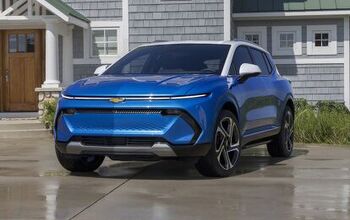EPA to Approve Diesel Repair for an Additional 84,000 Volkswagens: Report

The Environmental Protection Agency and California Air Resources Board will soon announce an approved fix for roughly 84,000 recalled Volkswagen diesels. As part of VW’s buyback program of cars equipped with emissions-cheating defeat devices, the soon-to-be-certified modification allows 2012-2014 Passat TDIs to operate within acceptable pollution guidelines.
Volkswagen has already designed fixes for the Generation 3 diesel 2.0-liter engines, providing vehicle owners the choice to keep and repair their car, or to have it bought back. Similar fixes in Europe have yielded complaints of reduced fuel economy, starting difficulties, trimmed power, weak acceleration, and even abnormal sounds. As usual, if you want to hold onto your TDI, you may be doing so at your own risk.
Still, test data and technical information submitted to EPA and CARB by the automaker has demonstrated that the emissions modifications shouldn’t affect vehicle fuel economy, reliability, or longevity. The agencies also claim to have confirmed those conclusions through independent testing and analysis at their own laboratories.
Nobody would condemn VW owners for thinking it over before they made a commitment, however.
The new mending is specifically for older model Passats equipped with the 2.0-liter engine and automatic transmission. Those vehicles join the 67,000 2015 model year Beetle, Golf, SportWagen, Jetta, Passat, and Audi A3 diesel cars already available with EPA-approved fixes. It’s assumed the repair jobs will function similarly, involving a two-stage software adjustment and swapping some old hardware out for new.
Sources briefed on the matter told Automotive News the fix has already been approved internally, and is only awaiting an official announcement. Volkswagen can then notify owners of their options directly.
This latest news whittles the number of 2.0-liter VW vehicles without a regulator-approved repair down to 325,000.

A staunch consumer advocate tracking industry trends and regulation. Before joining TTAC, Matt spent a decade working for marketing and research firms based in NYC. Clients included several of the world’s largest automakers, global tire brands, and aftermarket part suppliers. Dissatisfied with the corporate world and resentful of having to wear suits everyday, he pivoted to writing about cars. Since then, that man has become an ardent supporter of the right-to-repair movement, been interviewed on the auto industry by national radio broadcasts, driven more rental cars than anyone ever should, participated in amateur rallying events, and received the requisite minimum training as sanctioned by the SCCA. Handy with a wrench, Matt grew up surrounded by Detroit auto workers and managed to get a pizza delivery job before he was legally eligible. He later found himself driving box trucks through Manhattan, guaranteeing future sympathy for actual truckers. He continues to conduct research pertaining to the automotive sector as an independent contractor and has since moved back to his native Michigan, closer to where the cars are born. A contrarian, Matt claims to prefer understeer — stating that front and all-wheel drive vehicles cater best to his driving style.
More by Matt Posky
Latest Car Reviews
Read moreLatest Product Reviews
Read moreRecent Comments
- Calrson Fan Jeff - Agree with what you said. I think currently an EV pick-up could work in a commercial/fleet application. As someone on this site stated, w/current tech. battery vehicles just do not scale well. EBFlex - No one wanted to hate the Cyber Truck more than me but I can't ignore all the new technology and innovative thinking that went into it. There is a lot I like about it. GM, Ford & Ram should incorporate some it's design cues into their ICE trucks.
- Michael S6 Very confusing if the move is permanent or temporary.
- Jrhurren Worked in Detroit 18 years, live 20 minutes away. Ren Cen is a gem, but a very terrible design inside. I’m surprised GM stuck it out as long as they did there.
- Carson D I thought that this was going to be a comparison of BFGoodrich's different truck tires.
- Tassos Jong-iL North Korea is saving pokemon cards and amibos to buy GM in 10 years, we hope.


































Comments
Join the conversation
Speedlaw, Well said. You win the internet today!
"...test data and technical information submitted to EPA and CARB by the automaker has demonstrated that the emissions modifications shouldn’t affect vehicle fuel economy, reliability, or longevity..." Compared to the prior test data on a dynamometer in a lab or an A/B comparison of cars on a road or test track? It's my understanding that TDI owners saw better fuel economy and lower urea usage on the road in the cheating mode than occur in the emissions-compliant software mode.